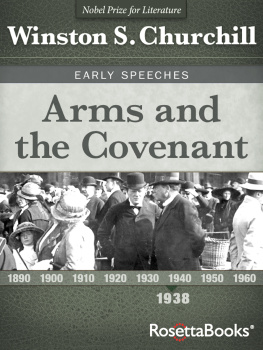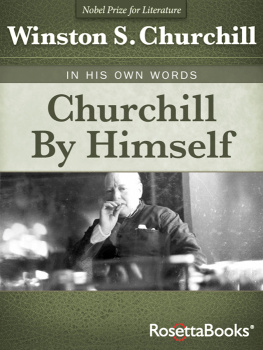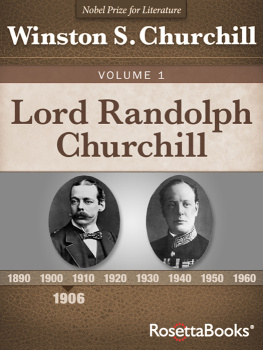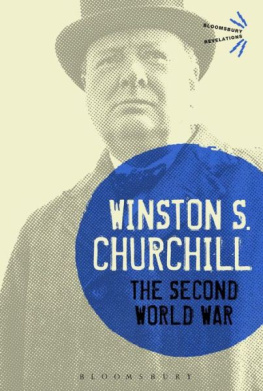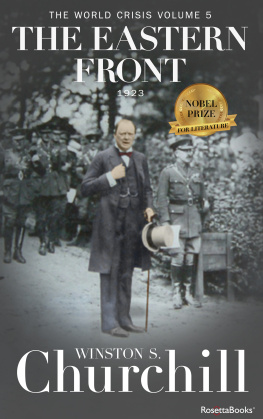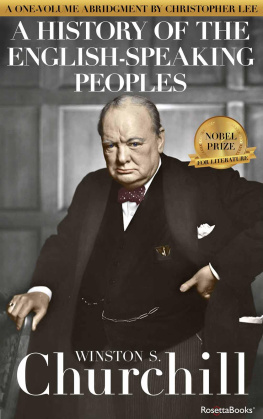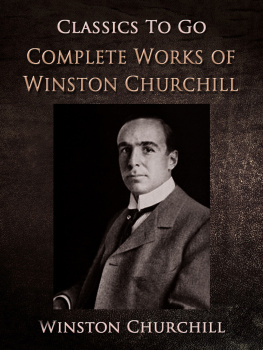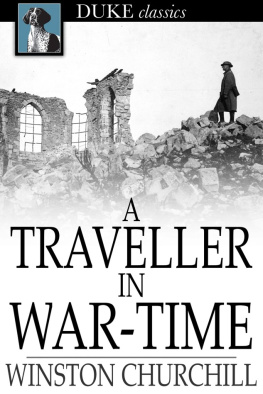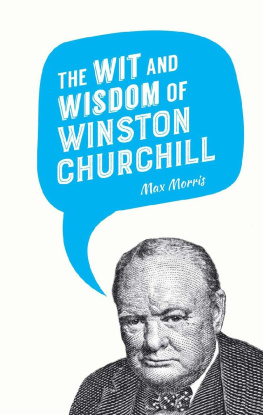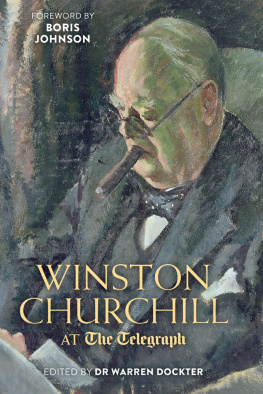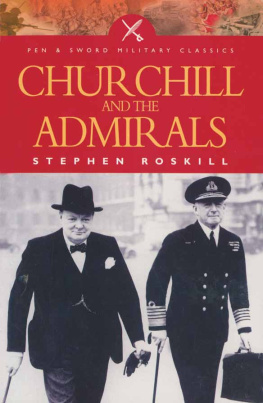Copyright
Speeches on Foreign Affairs and National Defence
First published in 1938. Speeches Estate of Winston S. Churchill
Cover art to the electronic edition copyright 2013 by RosettaBooks, LLC.
All rights reserved. No part of this book may be used or reproduced in any form or by any electronic or mechanical means, including information storage and retrieval systems, without permission in writing from the publisher, except by a reviewer who may quote brief passages in a review.
Image of Winston Churchill at Hendon Air Display with Lord Northcliffe reproduced by permission of Curtis Brown, London, on behalf of The Broadwater Collection, an archive of photographs owned by the Churchill family and held at the Churchill Archives Centre, Cambridge.
Electronic edition published 2013 by RosettaBooks, LLC, New York.
Cover jacket design by Alexia Garaventa
ISBN e-Pub edition: 9780795330377
Copyright Conde Nast Publications
Photo Steichen
PREFACE
My father has consented to a suggestion I made him some time ago that I should compile a volume of his speeches on Foreign Affairs and National Defence. This book is the result. All except the first were delivered in the last six years, and all but two in the House of Commons. With Mr Churchills permission I have made some excisions to avoid repetition. And he himself has helped me in making certain minor verbal changes to meet the difference between the spoken and the printed word. But nowhere have I omitted any argument or statement on the ground that its republication to-day in vastly different circumstances might prove a source of political inconvenience to its author. That there should have been no temptation to do so may perhaps be thought a testimony to the integrity of the double themea strong Britain based upon the Covenant of the League which emerges as the authors plan for the defence of freedom and peace. Observant readers will note the many cases where Mr Churchills prescience has already been proved beyond dispute, and some will detect occasions when he was alone in giving advice which might have advanced the national cause if it had not been disregarded, or accepted only too late.
Mr Churchills advocacy of the League as an effective instrument for the maintenance of peace does not begin to emerge until November 1933. The hope underlying the earlier speeches is that Britain will be able to steer clear of European commitments, and that France and her allies will be able to cope with any European dangers that may arise. He repeatedly points to the danger of urging France to disarm, and of thereby involving Britain more closely on the Continent. In these speeches, which cover the years 1932 and 1933, Mr Churchill argues that Britain should confine her interventions in Europe to pressing for redress of the grievances of the nations who lost the War. But even at this time he is constantly pointing out that, if Britain wishes to secure a real measure of detachment from the Continent and to preserve her full liberty of action, early rearmament is essential.
From November 1933 onwards Mr Churchill has to face a changed situation. With none of her grievances redressed, Germany has begun to rearm. During this period he persists in exposing the unwisdom of the successive attempts to weaken France, intensifies his demand for a strengthening of British defences, and (since Britain has meanwhile grown relatively weaker) begins to feel his way towards the establishment of a collective system to meet the arming German menace. But he continues to point out that, though this weakness must inevitably involve Britain more closely on the Continent, vigorous and timely rearmament still offers a hope of regaining a measure of detachment.
This mood underlies all the speeches from November 1933 to July 1936. Meanwhile the dangers which Mr Churchill has foreseen have drawn nearer. By 1936 Germany has been rearming on a colossal scale for three and a half years, and still no substantial progress has been made in strengthening British defences; and it is by now apparent that even if the British Government could be persuaded to make the necessary exertions, a long interval must elapse before Britain will once again be strong enough to maintain an independent position. Beginning with his speech Collective Security, of November 5, 1936, Mr Churchill presses with increasing resolution for a firm League policy to ensure that a united stand may be made so that the peaceful nations shall not be struck down one by one.
To mark the dynamics which produced these reactions in Mr Churchills arguments, I have divided the book into three partsGermany Disarmed, Germany Rearming and Germany Armed. These, of course, are relative and not absolute divisions, but they conveniently serve to emphasize the crescendo of events to which his theme was responding.
In compiling this volume I have read most of the speeches made by the leading spokesmen of all parties, as well as those of Mr Churchill, and I have reached certain conclusions which I trust it will not be thought unseemly, invidious, or unfilial for me to record. As a politician, Mr Churchill suffers from the disadvantage of being strangely free from the prejudices and ideologies which constitute such a large part of the mental equipment of our more successful public men. He always finds it difficult to subordinate his views on public affairs to the current exigencies of party position. Such independence of thought and speech is a handicap in the days when party machines are steadily increasing their power.
One of the distinctions between a statesman and a politician is that the former indulges in the luxury of subordinating party interests to those of the State. It may be that this unfashionable spirit of detachment from Party dogma becomes a virtue when applied to what used to be the non-party fields of national defence and foreign affairs. Those who think that these speeches reveal a true picture of the European scene and point the path that Britain ought to follow may perhaps decide that Mr Churchills insight in these matters arises not so much from his wide experience as from his ability to look at foreign countries without the spectacles of class or party.
In the main these forty speeches are a sustained effort to maintain the peace of Europe and the safety of Britain. As dangers present themselves in different forms or from opposite quarters the argument varies; but the purpose is always the same. If British interests are set in the foremost place, it is only upon the condition that they shall serve the cause of a free and progressive world.
Mr Churchills attitude towards foreign countries seems to be mainly influenced by whether their character and policy is likely to prove helpful or harmful to these larger conceptions. His natural liberalism is as much affronted by tyranny and cruelty in Nazi Germany as by similar acts in Communist Russia, but he does not allow the interior politics of foreign countries to cloud his judgment upon the practical question whether these countries are likely to prove themselves serviceable or dangerous to the high interests he sets himself to guard.
R ANDOLPH S. C HURCHILL
W ESTMINSTER G ARDENS ,



